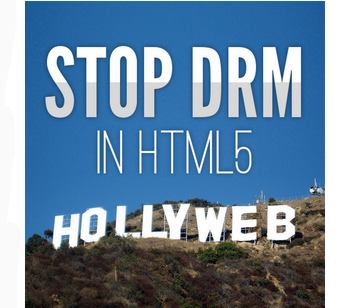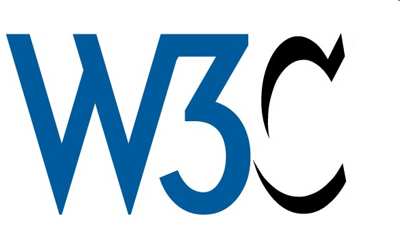| DRM APIs To Be Part of HTML5 Standard |
| Written by Alex Armstrong |
| Thursday, 03 October 2013 |
|
Tim-Berners Lee, director of W3C, (WorldWide Web Consortium, the body responsible for web standards) has approved a new charter for the HTML Working Group that allows work to continue on the controversial Encrypted Media Extension. News that the WC3 is going ahead with a plan that includes adding standards for DRM to HTLM5 has been greeted with dismay by the Electronic Frontier Foundation, which had lodged a formal objection about this during the review process earlier in the year. Back in April we reported on the campaign backed by the Free Software Foundation against adding DRM to HTML5. This included a petition on the Defective By Design website which attracted more than 28,6000 which was delivered to the W3C on this year's International Day against DRM, May 3rd.
The petition called on the W3C and its member organization to reject the Encrypted Media Extensions proposal (EME), which would incorporate support for Digital Restrictions Management (DRM) into HTML. As a newly appointed full member of the W3C, the Electronic Frontier Foundation filed its formal objection to the HTML Working Group charter arguing that: "support of playback of protected content" represents a significant broadening of scope for the HTML WG (and the W3C as a whole) to include the remote determination of end-user usage of content. In a press release issued at the time, EFF International Director Danny O'Brien stated: "This proposal stands apart from all other aspects of HTML standardization: it defines a new 'black box' for the entertainment industry, fenced off from control by the browser and end-user. While this plan might soothe Hollywood content providers who are scared of technological evolution, it could also create serious impediments to interoperability and access for all." If you want to know more about the Encrypted Media Extensions (EME) proposal that is at the heart of the controbversy, see DRM In HTML - The Programmer's View. In his blog post about the Berner-Lee's decision regarding EME that "playback of protected content" was in scope for the W3C HTML Working Group's new charter, O'Brien writes: We're deeply disappointed. ... By approving this idea, the W3C has ceded control of the "user agent" (the term for a Web browser in W3C parlance) to a third-party, the content distributor. That breaks a—perhaps until now unspoken—assurance about who has the final say in your Web experience, and indeed who has ultimate control over your computing device. O'Brien goes on to explain that by accepting "content protection" and that standards should be provided for prospective implementers, the W3C has "opened the door for the many rightsholders who would like the same control for themselves". He also pledges EEF's continued efforts to mitigate the effects of this decision: EFF is still a W3C member, and we'll do our best to work with other organizations within and without the consortium to help it fight off the worse consequences of accepting DRM. But it's not easy to defend a king who has already invited its attackers across his moat. He then goes on to express the idea that the decision could damage the W3C, pointing to the precedent of the formation of the WHATWG community which is currently developing the HTML Living Standard which doesn't contain EME or any other DRM-enabling proposals. From the programmer's pragmatic point of view it seems that you can have standardized DRM or non-standardized DRM - but either way you are going to have DRM. If anything the W3C proposals leave things a little too much in the hands of the DRM implementers. If W3C is going to get involved it might as well go the whole way and create a deeper and more binding standard.
More InformationW3C - New Charter for the HTML Working Group EEF - Lowering Your Standards: DRM and the Future of the W3C Encrypted Media Extensions (1st Public Working Draft) Related ArticlesDRM In HTML - The Programmer's View Protest Against Adding DRM APIs To HTLM5 hich HTML5? - WHATWG and W3C Split
To be informed about new articles on I Programmer, install the I Programmer Toolbar, subscribe to the RSS feed, follow us on, Twitter, Facebook, Google+ or Linkedin, or sign up for our weekly newsletter.
Comments
or email your comment to: comments@i-programmer.info
|
| Last Updated ( Friday, 04 October 2013 ) |




